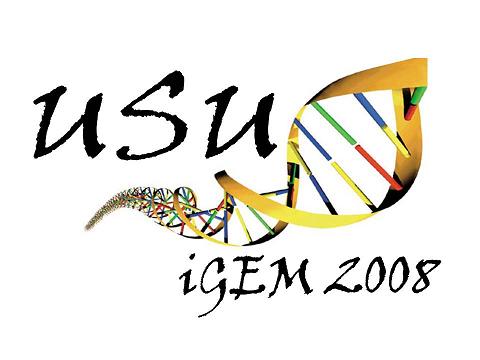From 2008.igem.org
(Difference between revisions)
|
|
| Line 1: |
Line 1: |
| | {| align="center" | | {| align="center" |
| - | |align="center" |[[Image:USUheader2.gif|960 px]] | + | |align="center" |[[Image:USUheader2.gif|960px|]]<br>[[Image:IGEMBanner.jpg|960 px]] |
| | |}<br> | | |}<br> |
| | {|style="font color="#CC3300"; background-color:#212223; cellpadding="3" cellspacing="5" border="2" bordercolor="#cd0000"border-spacing:6px; text-align:center" width="960px" | | {|style="font color="#CC3300"; background-color:#212223; cellpadding="3" cellspacing="5" border="2" bordercolor="#cd0000"border-spacing:6px; text-align:center" width="960px" |
| Line 20: |
Line 20: |
| | | | |
| | {|align="justify" | | {|align="justify" |
| - | [[Image:PHBBanner.jpg|960px|]]
| + | |
| | '''PHB'''<br> | | '''PHB'''<br> |
| | The increasing cost and negative environmental effect of fossil hydrocarbon-derived conventional plastics has escalated the need for economically realistic alternatives. Polyhydroxyalkanoates (PHAs) are a class of microbially synthesized, biodegradable thermoplastics that exhibit material properties comparable to those of conventional plastics. The Utah State University IGEM team project is focused on creating an efficient system for monitoring PHA production in recombinant microorganisms. | | The increasing cost and negative environmental effect of fossil hydrocarbon-derived conventional plastics has escalated the need for economically realistic alternatives. Polyhydroxyalkanoates (PHAs) are a class of microbially synthesized, biodegradable thermoplastics that exhibit material properties comparable to those of conventional plastics. The Utah State University IGEM team project is focused on creating an efficient system for monitoring PHA production in recombinant microorganisms. |
Revision as of 21:48, 29 October 2008


|
PHB
The increasing cost and negative environmental effect of fossil hydrocarbon-derived conventional plastics has escalated the need for economically realistic alternatives. Polyhydroxyalkanoates (PHAs) are a class of microbially synthesized, biodegradable thermoplastics that exhibit material properties comparable to those of conventional plastics. The Utah State University IGEM team project is focused on creating an efficient system for monitoring PHA production in recombinant microorganisms.
The Project
Utah State University is proud to be involved in the 2008 IGEM competition for its first year. The 2008 USU iGEM team consists of graduate and undergraduate students in Biological Engineering, as well as two high school students under the supervision of professors with backgrounds in Biological Engineering, Electrical Engineering, Biology, and Microbiology. Prior to this project, none of the undergraduate or high school students had experience with genetic engineering or synthetic biology. This project provided a great opportunity for these students to learn about synthetic biology and its potential, as well as to gain a great deal of hands on experience with laboratory methods. Through team meetings and working closely together in the lab, team members were also provided with opportunities to get to know each other and the specific project material.
Though many project topics were seriously discussed, the team chose the project for developing a method of monitoring Polyhydroxybutyrate production in microorganisms by inserting a reporter in the PHB cassette. This project was selected because of its potential to make the PHB production process more efficient and cost effective by creating a simple system for determining the optimum time for PHB extraction. This project was carried out from May to October of 2008.
USU is located in Logan UT and is nestled in the beautiful mountains of Cache Valley. For those interested in a great education and are looking for amazing outdoor adventures and recreation, USU is perfect!!
|


 "
"


